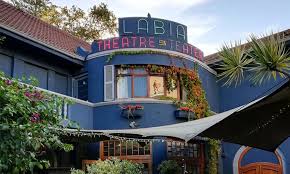Code of Conduct
Your safety and enjoyment of the Kruger National Park are very important to us. To ensure a pleasant and successful trip, it is essential that you adhere strictly to the regulations which are intended for your protection and enjoyment.
Rules and Regulations
To ensure a safe and joyful trip through our parks, kindly adhere to the Rules & Regulations as stipulated by South African National Parks.
- Travelling to and from Mozambique through Kruger National Park
- Visitors must remain in their vehicles unless in a designated area. Remember that no part of the body may protrude from a window or sunroof or any other part of the vehicle. Vehicle doors should be closed at all times.
- Stick to the speed limit! All general rules of the road apply within the Kruger National Park. The speed limit is 50 km/h on tar roads and 40 km/h on gravel roads. Please note that not all roads are accessible to caravans.
- Look at the gate times in your green gate permit. You must be inside the camp or out of the gate before these times. No travelling before or after these times are allowed. Gate times must be strictly adhered to and late comers may be subject to a fine.
- You are not allowed to drive “off-road” or on roads with a “no entry” sign.
- The feeding or disturbing of animals is a serious offence. Remember, animals see litter as food!
- Overnight visitors are only allowed to stay at a booked and recognised overnight facility and must report to reception before occupying accommodation or camping.
- All accommodation and camping sites may be occupied from 14:00 on the day of arrival and must be vacated by 10:00 on the day of departure.
- Vehicles of a carrying capacity exceeding 4 000kg, buses or any vehicles with more than 25 seats, are restricted to the tar roads.
- A stringent noise restriction is enforced between 21:30 and 06:00. The use of cell phones is permitted only in camps, gates and in cases of emergency.
- The use of roller skates, skateboards, bicycles and motorbikes is prohibited.
- The use of drones inside (and over) our national parks is strictly prohibited.
- The Kruger National Park is a malaria zone – we advise that all visitors adhere to their doctor’s instructions.
- Roadside assistance, toll free number 0800 030 666 (Vuswa).
- Rules and regulations are enforced under the National Environmental Management: Protected Areas Act, 2003 (Act no. 57 of 2003) and transgression can result in a fine.
- To ensure that you see all the animals you want, have a look at the spotting board in the various receptions to track the latest game spotting.
Ecological Aspects
This enormous and magnificent park is one of the most popular public-entry game parks in the world. Its density of permanent game is unrivaled with hundreds of different species; 507 birds, 336 trees, 147 mammals, 114 reptiles, 49 fish and 34 amphibians!
Few visitors leave South Africa without visiting the Kruger National Park or one of the private reserves along its borders but it is also frequented by locals in their own vehicles, as you can drive yourself around and stay overnight in one of the many public rest camps. There are also a few exclusive private lodges that have been granted concessions within the Kruger National Park.
Animals You May Encounter
Rats, mice, bats and insects, snakes and other small mammals have been around in all the rest camps of the Kruger National Park (KNP) for many decades.
This is due to the artificial nesting and roosting sites created for them by the buildings, as well as vast sources of food brought about by visitors leaving foodstuff outside and all the insects attracted to the lights in the camps. Even in camps where special bat-houses are installed, bats still use the buildings as well. It is almost impossible to keep the rodents and bats out of buildings as they originate from the surrounding natural bush and are able to crawl through the tiniest of holes.
Fortunately the vast majority of visitors to the KNP realise that rodents, bats and other insects, reptiles and mammals are an integral part of the KNP ecosystem and accept them as such. Kruger Park boasts an impressive diversity of rodents: 25 species of rodents (mice and rats), 9 species of shrews, 3 species of elephant shrews and 43 species of bats.
Most people also accept that a visit to the Park may inevitably lead to some sort of a close experience with some ‘creepy crawly’, be it a bat, mouse, spider, scorpion or insect.
Bats and Insects
Light draws many flying insects and with these insects come their predators. These predators could take on the form of bats and frogs. Please remember to keep your screen doors closed as this will prevent these unwanted creatures from entering your room. Should you forget and a bat enters the room by mistake, please do not panic! Calmly place a towel over the bat and release it outside or call for assistance.They are some of the most interesting small mammals with some of the most extraordinary adaptations to find food and survive. Bats, for example, use ecolocation in flight to zoom in on insects and this is one of the wonders of the world in my view. An African night will never be complete without their feint but sharp sounds in the background.
Spiders, Snakes and Scorpions
Yes, these creatures are part of our environment but will most probably not harm you if not threatened. If you must walk around at night please DO NOT DO SO WITHOUT A TORCH. If you do come across a snake please do not try to catch it! Rather report this to the Manager on duty or to reception.
Monkeys, Baboons and Bushbuck
Monkeys, baboons and bushbuck can be entertaining for young and old, BUT PLEASE DO NOT FEED THEM. Remember that by feeding them, you are signing their death warrant, as they become aggressive and may have to be destroyed. By feeding these animals you do not only aggravate the situation but you also make these animals lazy and they become dependent on this food supply. The same applies to animals you may encounter along the fences of the camps in KNP, including Hyena. Do not throw food to them or attempt to touch or tease them.
Before going out in the morning in search of animals please make sure that you have put all foodstuffs securely away. Remember that these monkeys and baboons have learnt to open up fridge doors and cupboards.









 Travel Credits can be used to purchase other specific TBOG Tour the World Travel Experiences. Travel credits issued from travel booked in
Travel Credits can be used to purchase other specific TBOG Tour the World Travel Experiences. Travel credits issued from travel booked in 


































 But first, you will stop at The Victorian Gothic-style Clock Tower, which is an icon of the old Cape Town Harbour. It was the original Port Captain's Office built in 1882. The pointed Gothic windows surrounds the structure with a clock, imported from Edinburgh, as a main feature. The red walls are the same color as they were in the 1800's, having been carefully matched to scrapings of the original paint. This is always a meet-up point for tourist and locals at the Waterfront.
But first, you will stop at The Victorian Gothic-style Clock Tower, which is an icon of the old Cape Town Harbour. It was the original Port Captain's Office built in 1882. The pointed Gothic windows surrounds the structure with a clock, imported from Edinburgh, as a main feature. The red walls are the same color as they were in the 1800's, having been carefully matched to scrapings of the original paint. This is always a meet-up point for tourist and locals at the Waterfront.
 After your Robben Island experience, it is time for lunch in Bo-Kaap known for its vibrant culture and history. Here you will experience Cape Malay cuisine in my colorful kitchen, known for its sweet, sour, fruity, and aromatic flavors. Learn to cook traditional Cape Malay dishes and enjoy a feast of savory, sweet, and spicy flavors. You'll receive spices and recipes to recreate the experience at home as a parting gift. Fayruza, a passionate food enthusiast and successful entrepreneur, aims to share her love for cooking with as many people as possible. The experience will take place in my family home in Historical Bo-Kaap, known for its colorful and traditional appearance, with a unique view of Table Mountain.
After your Robben Island experience, it is time for lunch in Bo-Kaap known for its vibrant culture and history. Here you will experience Cape Malay cuisine in my colorful kitchen, known for its sweet, sour, fruity, and aromatic flavors. Learn to cook traditional Cape Malay dishes and enjoy a feast of savory, sweet, and spicy flavors. You'll receive spices and recipes to recreate the experience at home as a parting gift. Fayruza, a passionate food enthusiast and successful entrepreneur, aims to share her love for cooking with as many people as possible. The experience will take place in my family home in Historical Bo-Kaap, known for its colorful and traditional appearance, with a unique view of Table Mountain. 

 POLITICAL
POLITICAL  ART
ART.jpeg) RENT A BIKE
RENT A BIKE
 CATCH A LOCAL ART FILM
CATCH A LOCAL ART FILM SHOP AT THE LOCAL MARKETS
SHOP AT THE LOCAL MARKETS 













 Let's go back in time. 8115 Vilakazi Street. Mandela House and Vilakazi Street are iconic landmarks on the map of South African history. Immerse yourself in the memory of one of South Africa’s most important struggle journeys.
Let's go back in time. 8115 Vilakazi Street. Mandela House and Vilakazi Street are iconic landmarks on the map of South African history. Immerse yourself in the memory of one of South Africa’s most important struggle journeys. 







